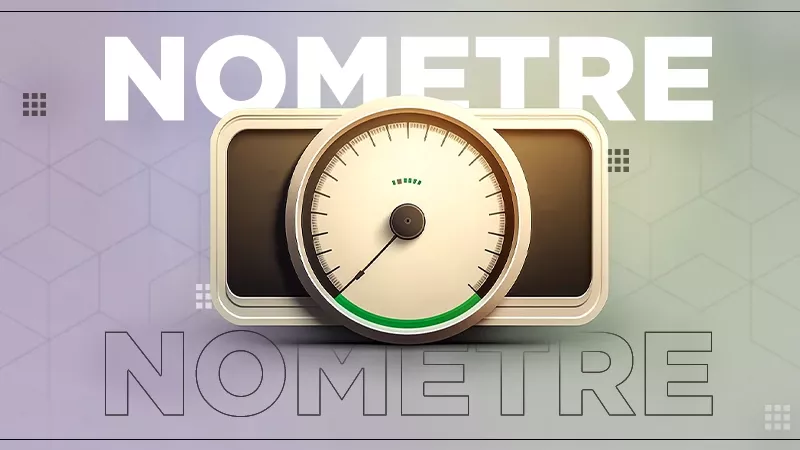Nometre is a term that has sparked curiosity across various fields, from linguistics and literature to philosophy and abstract sciences. The word ‘nometre’ itself may appear enigmatic at first glance, yet it carries rich layers of conceptual, metaphorical, and potentially practical meanings depending upon its contextual interpretation. In this article, we embark on a comprehensive exploration of nometre, analysing its possible etymology, philosophical implications, literary connections, and future relevance in human thought and culture.
The most direct interpretation of nometre points towards its construction as a term possibly derived from ‘nomos’ (meaning law or custom in Greek) and ‘metre’ (meaning measure). Thus, it can be seen as a concept bridging the ideas of measurement, order, law, and structure. However, in philosophical and abstract circles, no metre has been used to indicate a dimensionless or measureless state, pointing towards phenomena or realities that exist beyond quantifiable systems.
Etymological and Conceptual Roots
The speculative etymology of no metre lies in its parts. ‘Nomos’ in classical Greek philosophy referred to not only legal systems but also the idea of natural or cosmic order. On the other hand, ‘metre’ is widely known as a unit of measurement or rhythm in poetry. Combining these notions, no metre can be understood as a measurement of law or an ordering principle. Conversely, some philosophical schools use it as an antonym – a state devoid of measurable structures, denoting transcendence of conventional frameworks.
This dual meaning – order versus unmeasurability – makes no metre a powerful term for discussing topics in metaphysics, where scholars seek to define realities beyond the material, observable world. The idea of something being ‘nometre’ suggests that it cannot be captured within the confines of dimensional physics or empirical observation, thereby challenging human reliance on quantification.
Nometre in Philosophical Discourse
In metaphysics, the concept of no metre is often explored alongside non-dualism and transcendental philosophies. For instance, if metre is seen as the fabric through which reality is understood (time, space, rhythm, law), then no metre denotes that which exists prior to or beyond such frameworks. This could include consciousness in its purest form, divine existence, or ultimate reality as described in mysticism.
Eastern philosophies like Advaita Vedanta or Mahayana Buddhism hint at similar notions, though they do not use the word no metre. The concept of ‘Sunyata’ (emptiness) in Buddhism describes a reality that cannot be pinned down by conceptual measure, while Brahman in Vedanta is considered immeasurable and infinite. In these contexts, no metre becomes a useful abstract term to discuss ideas of absolute being or emptiness beyond mental constructs.
Literary and Poetic Dimensions
In literary theory, no metre finds significance in analysing free verse poetry and experimental writing styles. Traditional poetry is bound by metre, rhythm, and structured syllabic counts, ensuring predictable flow. However, with the emergence of modernist and postmodernist movements, poets began rejecting rigid metrical systems, seeking expression unconfined by established rules. Here, no metre could be invoked as a concept denoting poetry that intentionally avoids or transcends metrical constraints.
This not only liberates poetic language but also allows deeper psychological and philosophical reflections within literary works. No metre as an aesthetic choice becomes a rebellion against formulaic art, opening the doors for fluid expression, fragmented structures, and non-linear storytelling. Writers like Ezra Pound, T.S. Eliot, and contemporary spoken word poets embody this spirit of no metre, even if the term itself is not explicitly used in their works.
Scientific and Mathematical Interpretations
In abstract mathematics and theoretical physics, some scholars interpret no metre as an idea that could represent dimensionless quantities or singularities where known measures collapse. For instance, in the study of black holes, the concept of singularity denotes a point where space-time curvature becomes infinite, and conventional physics fails to apply measurable concepts. While no metre is not a formal scientific term, its philosophical resonance with such phenomena makes it a poetic metaphor for measurelessness in science.
Additionally, in pure mathematics, dimensionless constants and ratios are treated as fundamental truths that transcend units, hinting at a ‘nometre’ reality in the numerical world. These dimensionless values often reveal hidden symmetries or universal truths, reinforcing the idea that not all truths are bound by measurable systems.
Cultural and Sociological Implications
From a sociological perspective, no metre can be used as a lens to critique modern society’s obsession with quantification, ranking, and metrics. In an age where data-driven models dominate policy, education, health, and art, the notion of no metre challenges us to consider what lies beyond numbers. Human emotions, dignity, creativity, and spirituality are aspects of life that resist measurement yet define our existence.
Using nometre as a critical tool, thinkers advocate for approaches that integrate qualitative insights alongside quantitative data. This broadens our understanding of social realities and allows space for the immeasurable aspects of life to influence decision-making and cultural evolution.
Nometre and The Future of Thought
As artificial intelligence and machine learning models advance, the dominance of measure-based analysis continues to rise. Yet, concepts like no metre remind us of the limitations of such models. Machines process data in measurable units, but human consciousness experiences realities that defy quantification – love, intuition, transcendence, and spiritual awakening. Thus, no metre stands as a philosophical and ethical counterweight to purely metric-driven systems.
Moreover, as humanity explores quantum physics, cosmology, and consciousness studies further, the relevance of no metre will only grow. It will continue to provide a vocabulary for discussions about realities beyond current human comprehension. Whether in defining the nature of consciousness, exploring life beyond material existence, or creating new art forms, no metre encourages us to look beyond dimensions and units towards more profound truths.
Personal and Inner Reflections
On an individual level, embracing the concept of no metre encourages people to let go of rigid self-measurements. Often, we define our worth through productivity, social standing, or external validations. Nometre teaches us to cultivate a space within where existence is experienced beyond any labels, comparisons, or metrics. This can be spiritually liberating, allowing a deeper sense of peace, creativity, and authentic living.
Practices such as meditation, mindfulness, and deep contemplation embody the spirit of no metre. They create mental and emotional spaces where experiences are not categorised but felt purely. Thus, integrating no metre in life philosophies can enhance psychological well-being and spiritual growth.
Final Thoughts
In conclusion, nometre is a powerful and multifaceted term encompassing philosophical, literary, scientific, and personal dimensions. Whether used to describe measurelessness in metaphysics, freedom in poetry, or unquantifiable truths in life, it serves as a reminder that reality is much vaster than the systems we construct to understand it. As society evolves towards increasingly metric-based structures, embracing the essence of nometre may restore balance by honouring the infinite, immeasurable, and ineffable aspects of existence.
Through this exploration, it becomes evident that the journey of understanding nometre is itself a nometre process – boundless, infinite, and beyond conclusion. It challenges each one of us to remain open to dimensions of truth and beauty that no number, formula, or metre can ever fully capture.

